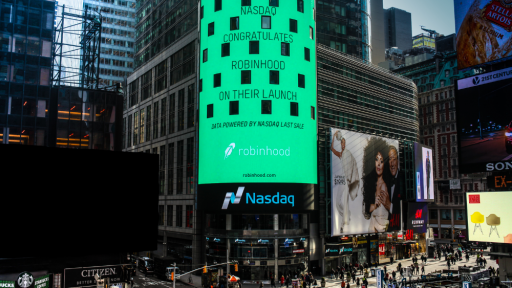- Home
- >
- Market Rumours
- >
- 50% of Robinhood’s earnings as a result of a controversial deal with the HFT Market Maker

50% of Robinhood's earnings as a result of a controversial deal with the HFT Market Maker

Robinhood Markets Inc. Build a reputation in the financial sphere by offering stock-exchange trading free of charge. At the same time, however, half of the company's revenue comes from one of the most controversial Wall Street practices - High Frequency Trading.
The company's start-up, estimated at $5.6 billion, has accrued more than 50 percent of its revenue from the sale of orders to its customers, high-frequency brokers or market makers such as Citadel Securities and Two Sigma Securities.
The questions were not too late. As a result of the pressure, the company changed the section of the site "How do we make money" and published a letter from co-founder Vlad Tenev, which clearly outlines the practice. "I want to use this opportunity to shed light on how Robinhood performs your orders without jargon, just the facts," Tenev writes.
The letter says the company did not take into account the size of market maker payments when deciding where to direct the deals. "We send your orders to a market maker who is most likely to give you the best performance," Tenev said in a letter posted on the company's blog. "For even finer control, we offer limited orders that allow you to specify the desired price."
However, the practice of selling orders to market makers has long attracted criticism from regulators and consumer advocates who claim to create a conflict of interest in which consumers can lose. Citadel Securities and Two Sigma Securities declined to comment.
Here's how it works: Retailers such as Robinhood focus on customer recruitment and business interface building, but do not actually execute their clients' orders. They assign to companies, including Citadel, Two Sigma and Wolverine Securities, which they pay for the right to deal with these deals. While orders from large, sophisticated investors can "burn" a market maker that is trading, retail is considered relatively safe.
These companies earn a little money from each transaction, often with 1 cent or less per share. Some believe that paying for order flow is a critical element of market infrastructure - making it quicker and cheaper to buy/sell shares. But critics of high-frequency trading have long argued that the practice is actually detrimental to the small investor and to the benefit of big companies.
Federal rules say realtors need to look for the best deal for customer deals, but finding the best possible price is not necessarily a requirement. Consumer advocates argue that the system creates an incentive for brokers to direct orders to the market-maker who pays the most.
In the fourth quarter of last year, regulatory disclosures have shown that Robinhood has sent almost all of its share deals to four high-frequency market makers. The majority is bought by Citadel, which pays Robinhood on average at "less than $0.0024 per share" for deals worth $150 billion.
During this quarter of 2017, Citadel and Two Sigma have paid the company more a share than they paid TD Ameritrade Holding Corp., E * Trade Financial Corp. and Charles Schwab Corp. taken together.
Robinhood was founded in 2013. and quickly became the star of Silicon Valley. It has attracted millions of investors from traditional Wall Street firms that are hard to earn for customers - with the prospect of not paying anything for trade. The launch of the project has raised over $ 500m. of the venture capitalists. Last month, less than four years after its release, California-based Menlo Park, said it was on its way to initial public offering and plans to target other markets.
Source: Bloomberg Finance L.P.
 Trader Petar Milanov
Trader Petar Milanov Read more:
If you think, we can improve that section,
please comment. Your oppinion is imortant for us.











